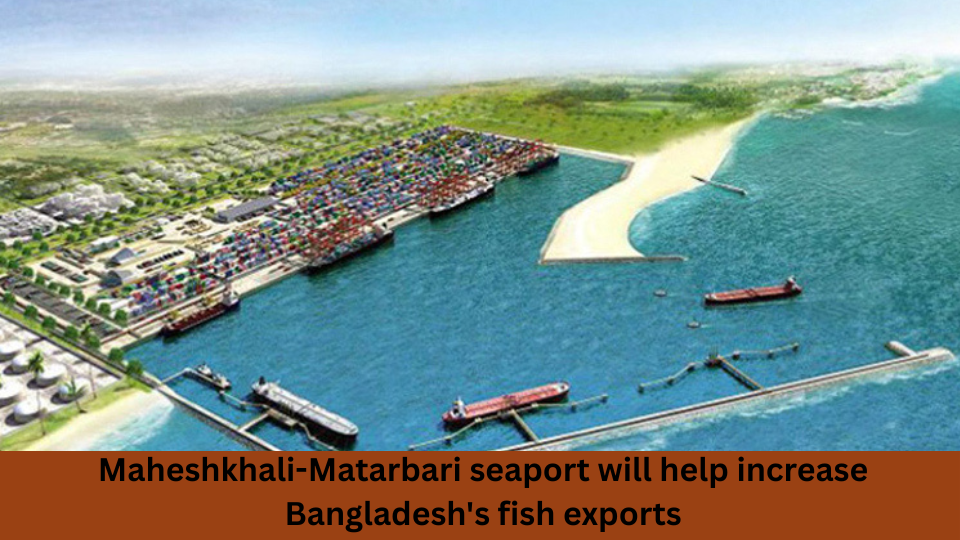Industry sources said the under-construction Maheshkhali-Matarbari seaport will help increase Bangladesh’s fish exports.
Japan is supporting the construction of this seaport as part of the Maheshkhali-Matarbari Integrated Infrastructure Development Initiative. It will play a significant role in reducing traffic congestion at Chittagong Port and facilitating the direct handling of large ships.
This will have a direct impact on the fisheries sector, as fast transportation by protecting the cold chain is very important for this sector.
“The new port will greatly reduce the transportation time of perishable goods like frozen fish and seafood,” said Nurul Islam, a fish trader in Maheshkhali. “As a result, it will be easier for our products to reach global markets where freshness standards are strict.”
Matarbari fisherman Mohammad Ali said, “If the deep sea port is opened, our caught fish will be exported in a very short time. This will get us a fair price, which will help improve our standard of living.”
About 7 percent of the world’s total fish comes from the Bay of Bengal. In addition, more than 450 million people around the world depend on the Bay of Bengal’s ‘blue economy’. Bangladesh is a member of the Indian Ocean Tuna Commission (IOTC), which allows fishing in certain areas of the Indian Ocean. As a result, Bangladesh gets a quota for two specific species of tuna. And it can catch the other two species as it wishes. However, the quota remains unfulfilled every year.
To solve this problem and encourage deep-sea fishing, the Ministry of Fisheries and Livestock has approved the construction or import of 28 longliner fishing vessels. Matarbari Port will help existing and new entrepreneurs like the Chankariya shrimp industry to quickly send products to countries like Europe, the United States, and Japan.
For example, there is a potential of US$500 million from scallop processing and export. In addition, Mida’s strong logistics facilities are expected to bring a wave of new investment to the country.
Source: Click here

